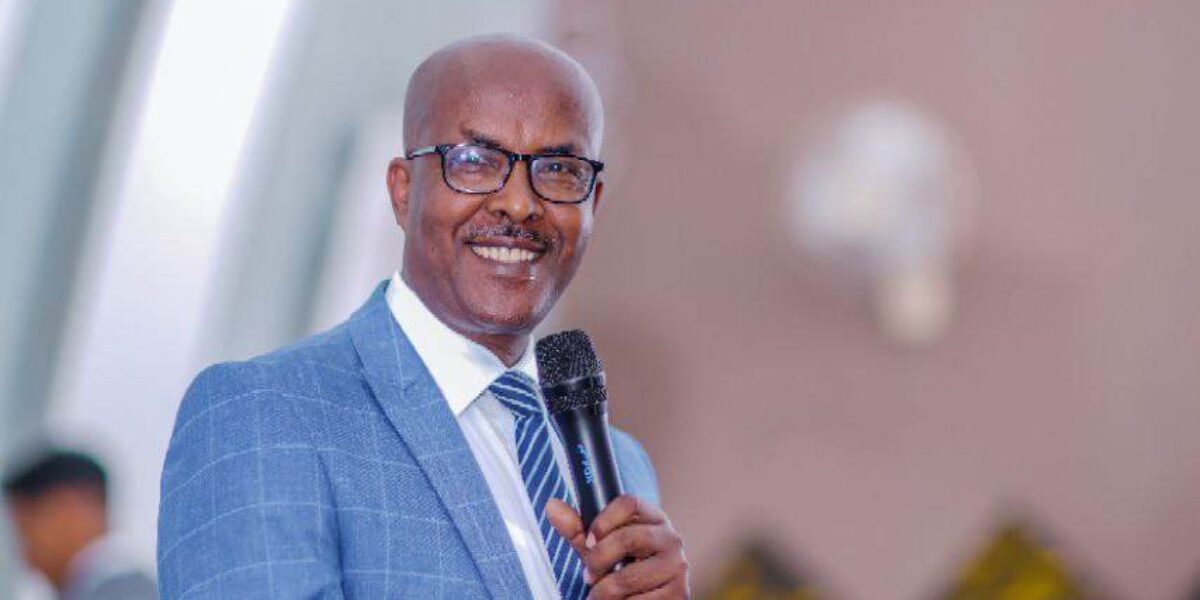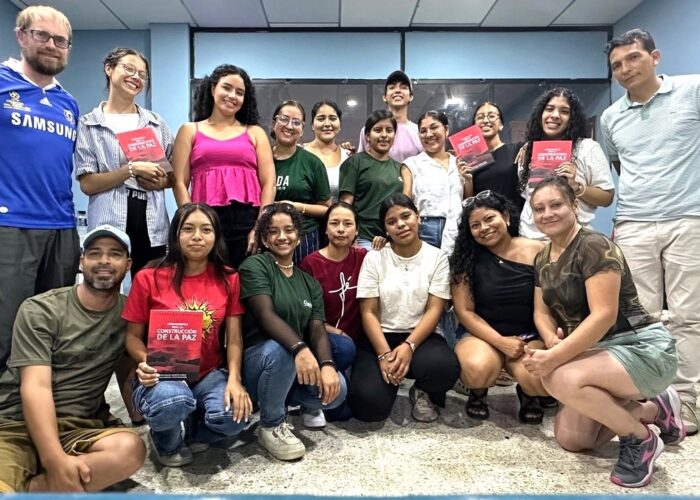Desalegn Abebe, president of Meserete Kristos Church in Ethiopia, spoke to North American Mennonites about how the largest Mennonite-affiliated denomination in the world integrates prayer, relief and social outreach to participate in God’s work.
In a February Zoom conference organized by Mennonite Church Canada, Desalegn Abebe, president of Meserete Kristos Church (MKC), discussed how the denomination is responding to the conflict in the northern region of Ethiopia. MKC has taken several measures to provide aid, including praying for peace and stability and raising funds for displaced people. Abebe said that "prayer is not just a program" for them but an integral part of their lives. MKC believes in the power of prayer and prays for everything and every situation.
Because of the conflict in the Tigray region, MKC had to resort to unconventional methods to transfer funds to people in the affected areas. The church has sent approximately 14 million Ethiopian birrs (approximately $260,000 USD), through the United Nations, to help those in need. They have also provided essential items like blankets, oil and flour, in addition to using social media platforms to share short videos and audio clips with displaced people. Additionally, they reached out to the affected communities, through phone calls, to encourage them and offer support. Abebe and other church representatives visited affected congregations, when possible, to offer words of encouragement and prayer.
When North American church leaders on the conference call asked how MKC balances justice work and evangelism, Abebe said that there is no polarity between the two in Ethiopia — MKC is unified and holistic. Humanitarian aid and evangelism efforts within the church sometimes overlap or occur simultaneously. To address this, MKC has provided training in peacebuilding and reconciliation to its church leaders. Additionally, the communal and societal mindset present within the community has been instrumental in supporting these efforts.
Social justice issues in the Ethiopian context are often intertwined with politics, which can create a complex dynamic, Abebe said. Ethiopian politics are rooted in ethnic divisions. However, the church focuses on humanity first, supporting individuals, regardless of their religious or ethnic backgrounds. MKC members have, sometimes, intentionally avoided explicitly mentioning their faith to prevent it from being a barrier to aiding those in need. Their faith guides their actions, even if it is not explicitly mentioned.
MKC is a missional church, and all believers are encouraged to share the good news of their faith in their workplaces and in their daily lives by living according to the teachings of the Bible. In this way, Abebe explained, all believers are missionaries. The church also engages in intentional and strategic missional outreach with the participation of all local church members. However, prayer is the most important aspect of their missional work. Church members pray for their country and its people, asking God to be with them and to draw them closer to God through the Holy Spirit.
MKC membership has been growing at a rate of 7% per year, but the denomination is striving for 10% growth. To encourage this, congregations are limited to 500 members, so that once the congregation reaches this size, they can establish another outreach center. This strategy helps to ensure that the church continues to expand and reach more people.
Abebe acknowledged the challenge of training leaders to provide congregational leadership in a church that is growing rapidly. One response is to transition part-time pastors into full-time ministry. While the goal is formal training at the Meserete Kristos seminary, MKC is working to fill the gaps through short-term training. The church has regional Bible colleges and many local Bible schools, which offer courses that are three-week to three-month, covering a range of contemporary issues.
MKC’s prison ministry illustrates how evangelism and social activism are closely integrated and how this outreach seeks to address the complex needs of those who are incarcerated, including the children who are often overlooked in traditional approaches to criminal justice. MKC has permission to minister in 33 of Ethiopia’s 134 prisons.
"If a person is sentenced to prison, their children are often allowed to stay with them," Abebe said. "This means that many children are living in prison alongside their parents. As part of our prison ministry, we focus on caring for these children by providing them with food, a kindergarten program, clothes and sanitary materials."
In addition to providing social support and practical-skills training to incarcerated individuals, MKC builds chapels in the prisons, in which prisoners can receive spiritual counseling and legal guidance. They also facilitate conversations between victims and offenders, using traditional conflict-resolution methods, which involve church elders and community leaders. By emphasizing the importance of reconciliation and forgiveness, the church’s prison ministry seeks to promote healing and restore relationships between those who have been affected by crime.
However, Abebe acknowledged that the prison ministry is not without its challenges, as it must operate within a complex system of legal regulations.
"We have to be accountable to the government and other officials who help us gain access to prisons to do our work," he noted. "But, because we have been doing this for a long time and have a proven track record of positive outcomes, many government officials know us and trust our work."
North American Mennonites were intrigued to hear MKC’s emphasis on prayer and the presence of the Holy Spirit in their work. The leaders in Ethiopia do not rely on church structures or strategic plans to guide their activities. Instead, they focus on maintaining a mindset of humility and openness to the ways in which the Holy Spirit is moving in their midst. This approach enables them to be fully present and engaged in all the church’s activities with the community. By emphasizing the power of prayer and the work of the Holy Spirit, the MKC leaders demonstrate a deep faith in God’s presence and guidance in their ministry.
Instead of saying, "Our thoughts and prayers are with you," in an act of all-consuming prayer, MKC leadership teams and all believers retreat into their rooms, close the doors and seek solace with God. They also come together as a community of believers, seeking God’s intervention in their complex situations, and asking God to guide them in their work. They take comfort in the knowledge that God hears all prayers and responds accordingly.
While Abebe was speaking with North American church leaders, the Asbury revival was taking place in Kentucky. This movement of the Holy Spirit started spontaneously on the Asbury University campus, Feb. 8, and ended Feb. 23.
What the North American church find newsworthy, is daily practice in the Ethiopian church, which relies on the work and guidance of the Holy Spirit, through frequent prayer and fasting. The world has much to learn from MKC brothers and sisters have much of value to share with the rest of the world!
At the core of the MKC leadership team’s approach to ministry is the recognition that their power and guidance comes from above, through the work of the Holy Spirit. Thus, they prioritize prayer as a central component of their work. While MKC does have organizational strategies in place, these are seen as secondary to the importance of seeking guidance and wisdom from the Holy Spirit. Perhaps this is the most important lesson North American Mennonites can learn from the MKC leadership team — the importance of seeking God’s guidance earnestly in all aspects of our lives. Rather than simply relying on our own analytical skills and resources, all followers of Jesus can tap into a source of power and wisdom that goes beyond their own limited human abilities.





